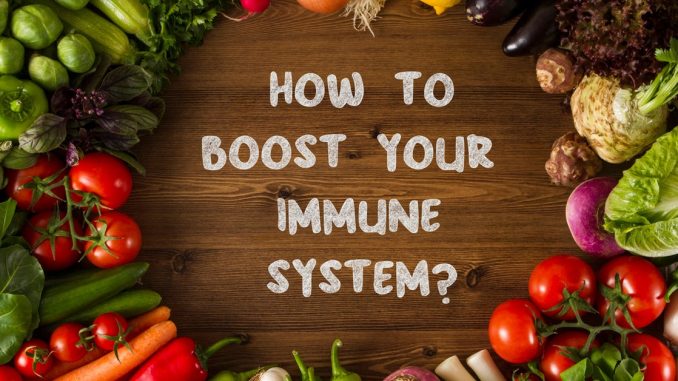
In our perpetual quest for well-being, the concept of a robust immune system frequently takes center stage, particularly in an era where health concerns can shift rapidly. While medical advancements offer crucial interventions, the fundamental truth remains: our bodies possess an innate, sophisticated defense mechanism capable of fending off pathogens and maintaining overall vitality. Strengthening this intricate system naturally isn’t about magical elixirs or fleeting trends; rather, it’s about embracing a holistic approach that nurtures the very foundations of health. It involves consistent, mindful lifestyle choices that empower your body’s inherent ability to protect itself, transforming you from a passive recipient of health advice into an active participant in your own immune resilience.
The cornerstone of a naturally strong immune system is undeniably nutrition. Your immune cells, like any other part of your body, require specific nutrients to function optimally. A diet rich in whole, unprocessed foods acts as the fuel and building blocks for this sophisticated defense network. Prioritize a diverse array of fruits and vegetables, particularly those high in Vitamin C (citrus fruits, bell peppers, broccoli), which is crucial for immune cell function, and Vitamin D (fatty fish, fortified foods, sunlight exposure), known for its widespread immune-modulating effects. Zinc, found in nuts, seeds, legumes, and lean meats, is another vital mineral for immune cell development and communication. Furthermore, the power of antioxidants, abundant in colorful produce, helps protect immune cells from damage caused by free radicals, ensuring they can perform their protective duties effectively. Think of your plate as a canvas, striving for a rainbow of colors to ensure a broad spectrum of nutrient intake.
Beyond individual nutrients, the health of your gut microbiome plays a profound and often underestimated role in immune function. The gut is home to trillions of bacteria, a complex ecosystem that profoundly influences your immune system, with a significant portion of immune cells residing in the gut-associated lymphoid tissue (GALT). Nurturing a diverse and balanced gut flora is paramount. Incorporate probiotic-rich foods like plain yogurt with live cultures, kefir, kimchi, sauerkraut, and kombucha into your diet. These fermented foods introduce beneficial bacteria that can help crowd out harmful pathogens and support a healthy gut barrier, preventing unwanted substances from entering the bloodstream and triggering an immune response. Additionally, consuming prebiotic fibers (found in garlic, onions, bananas, oats) feeds these good bacteria, helping them to flourish.
Regular physical activity, while often associated with cardiovascular health or weight management, is a powerful immune booster. Moderate, consistent exercise can increase the circulation of immune cells throughout the body, allowing them to detect and fight off pathogens more efficiently. It also helps reduce inflammation, a state that can suppress immune function over time. The key here is moderation; intense, prolonged exercise without adequate recovery can temporarily suppress the immune system. Aim for at least 30 minutes of moderate-intensity activity most days of the week, whether it’s a brisk walk, cycling, swimming, or dancing. Consistency is far more beneficial than sporadic, grueling workouts.
Perhaps one of the most critical, yet frequently sacrificed, elements for immune health is adequate sleep. It’s during sleep that your body performs essential repair and regeneration, including the production of crucial immune proteins called cytokines. Chronic sleep deprivation significantly weakens your immune response, making you more susceptible to infections and taking longer to recover from illness. Aim for 7-9 hours of quality sleep each night. Establish a consistent sleep schedule, create a relaxing bedtime routine, and optimize your sleep environment to ensure restful, uninterrupted slumber. Prioritizing sleep isn’t a luxury; it’s a fundamental pillar of immune resilience.
Managing stress is equally vital. Chronic stress triggers a sustained release of hormones like cortisol, which, over time, can suppress the immune system’s effectiveness and increase inflammation. While eliminating stress entirely might be unrealistic in modern life, developing healthy coping mechanisms is essential. Incorporate daily practices that help you de-stress: mindfulness meditation, deep breathing exercises, spending time in nature, engaging in hobbies, or connecting with loved ones. Finding what works for you to regularly calm your nervous system will have direct, positive implications for your immune health.
Finally, consider the benefits of strategic supplementation, but always with caution and ideally under professional guidance. While a whole-food diet should be your primary source of nutrients, certain supplements like Vitamin D, Vitamin C, Zinc, and high-quality probiotics can play a supportive role, especially if dietary intake is insufficient or if you live in a region with limited sun exposure. However, supplements are not a substitute for healthy habits; they are intended to complement a robust lifestyle.
In conclusion, a strong immune system is not built through isolated actions but through a synergistic combination of daily choices. By nourishing your body with nutrient-dense foods, supporting your gut health, engaging in regular moderate exercise, prioritizing sufficient sleep, and effectively managing stress, you create an environment where your immune system can thrive. These natural strategies empower your body’s intrinsic defenses, building a powerful resilience that helps you navigate life’s challenges with greater vitality and fewer health setbacks. It’s a holistic investment in your well-being, yielding dividends that extend far beyond simply avoiding illness.